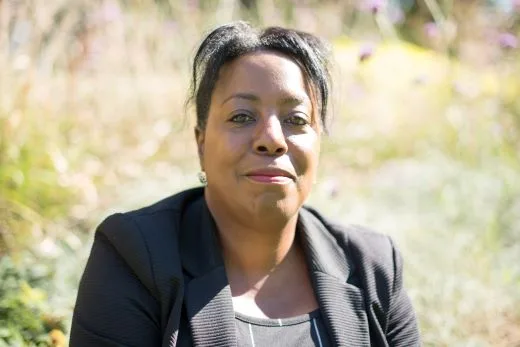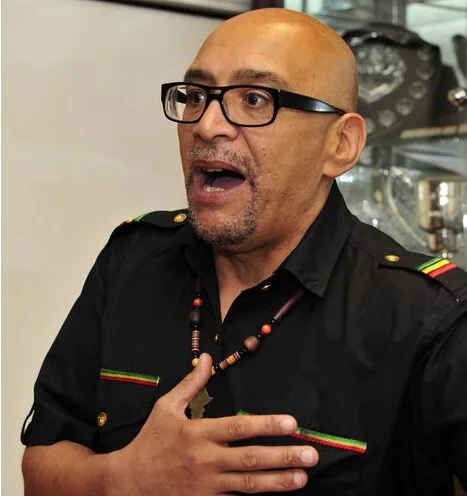BRITAIN’S Black community remains deeply unhappy about the criminal justice system and police use of stop and search, according to our new Black British Voices survey.
The biggest survey of Black opinion in Britain – which was conducted by The Voice and Cambridge University – found that 88 percent of those surveyed did not trust the criminal justice system. 79 percent believe stop and search is not being used fairly.
The Black British Voices (BBV) study, which combined polling and interviews, has shone a much needed spotlight on the critical need for criminal justice reform.

The overwhelming vote of no confidence in policing and the justice system in general should be a catalyst for debate and change, experts say.
Over 11,000 Black Brits responded to the BBV poll, with 8,263 answering questions on criminal justice.
One interviewee told researchers: “We need to get rid of all the bad apples, or the rogue police officers, we need them out. We need the police officers to be more accountable.”
Andrew Morris, a former prisoner on an indeterminate sentence who served 12 years instead of the five he was handed and who campaigns for the fair treatment of prisoners, knows all too well how easily people fall victim to a system which often works against Black people rather than for them.
“I’m amazed it’s not 100 percent” he told The Voice. “At the moment you have a 1.4 percent chance of having a complaint against the police upheld. The disparities in the criminal justice system, when it comes to Black and brown people are glaringly obvious.”
One of the major sources of distrust remains stop and search and the over policing of Black communities.
Unsurprisingly, the vast majority of BBV participants believe the practice is used unfairly against Black communities.
Morris says that stop and search is a necessary evil but targets the wrong people. He’s also mindful of the long term consequences.

“I think there’s a link between a young person who has a bad experience with a police officer who then goes on to lead a life of crime. I think it’s a causal link.”
Immigration lawyer Jacqueline McKenzie described the strong lack of trust in the criminal justice system as a whole as a crisis.
“It’s shocking” McKenzie told The Voice. “You’d always expect the figure to be high but 87 percent is nearly everyone.
“We all know that Black men are more likely to be charged and to receive longer sentences but to hear this figure is incredibly high.”
McKenzie went on to say that restoring trust is essential. “87 percent is a crisis. It’s frightening.

“I don’t know if all of those people have encountered the criminal justice system or had dealings with it themselves but this situation needs to be monitored closely.
“We need an investigation and we need training across the board and we need to keep looking at the data and compare outcomes with white offenders.”
Although 33 percent of respondents seemed ambivalent on the notion that more Black officers “might or might not” restore trust in the system, McKenzie maintains that representation remains important.
“We want to see representation but it’s not the whole picture. It’s about changing cultural norms.
“What we’re seeing is that these organisations are rotten to the core like we’ve seen with the Black Police Association and other examples of marginalisation. We need better representation but what we need is major cultural change and overall.”

Veteran race equality campaigner Lee Jasper, who formerly worked in City Hall, says that the views reflected in the BBV survey, especially the near unanimous distrust must become a wakeup call.
“The vast overwhelming majority of Black communities feel this way and it’s in total contrast to the perspective of this government which has criticised, turned its back, and is in complete denial about the realities of institutionalised racism.
“It points to a profound crisis in the legitimacy of democracy.”
Similarly with stop and search, Jasper argues things have become worse. The data on policing can sometimes be misleading.
“We started off in 1999 as 25 percent of 100,000 people being stopped and searched, to now being 25 percent of two million people being stopped and searched. The stats might be the same but the number of people affected is bigger.”
Jasper says that the Black community must now embark on the biggest ever campaign demanding constitutional and civil rights.
“We need to guarantee Black people’s protection from systemic racism in policing and criminal justice” he said, adding “no other solution will do.”
Overall the findings suggest a strong consensus that the criminal justice system is stacked against Black people.
While some respondents acknowledge the need for policing by consent, an overwhelming majority view stop and search as unfairly targeting Black people.
In 2023, the notion that better Black representation will tackle the root cause is viewed with ambivalence, rather than conviction, but still seen as a necessary step in 2023.


